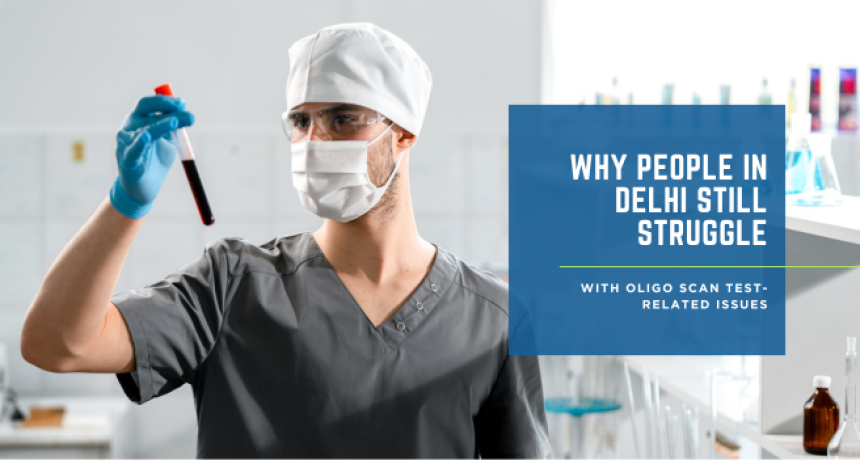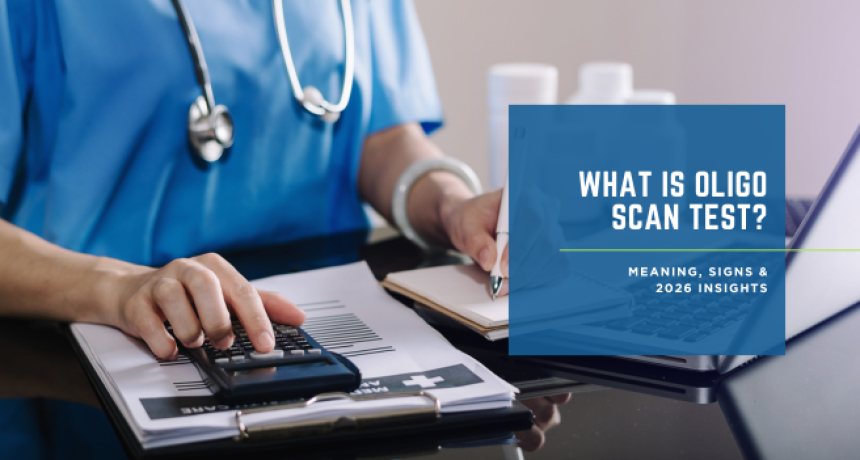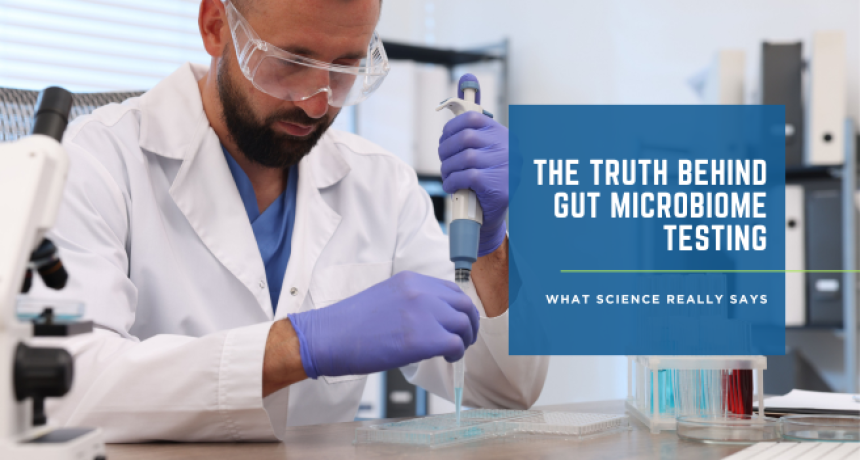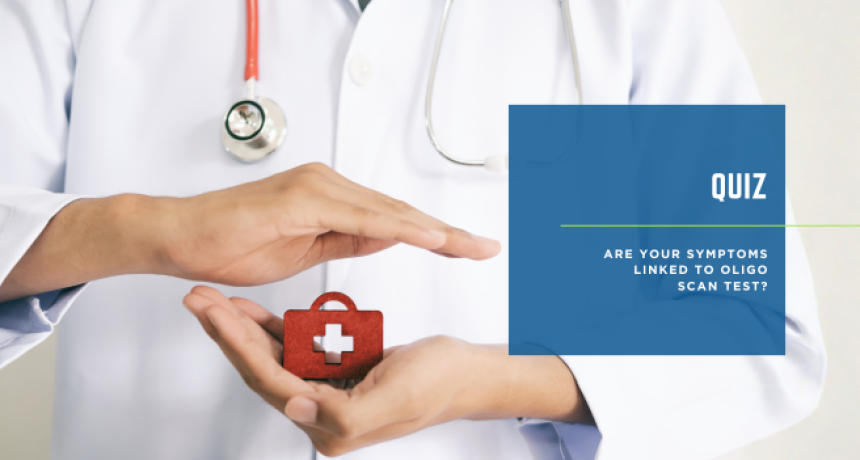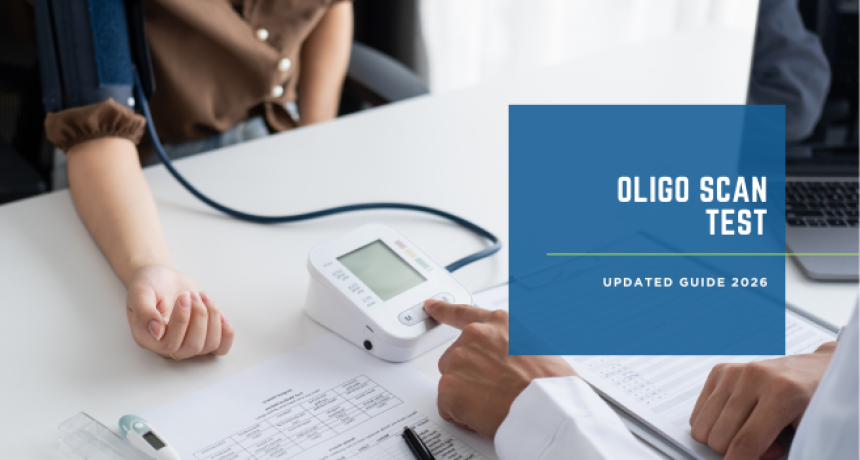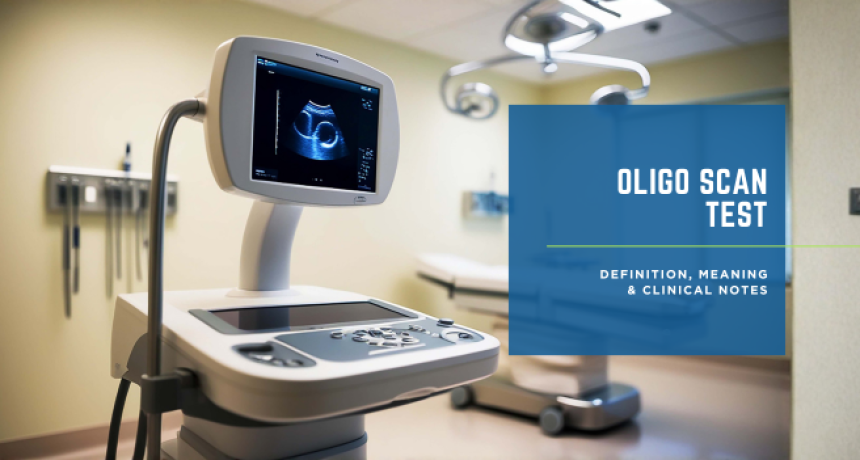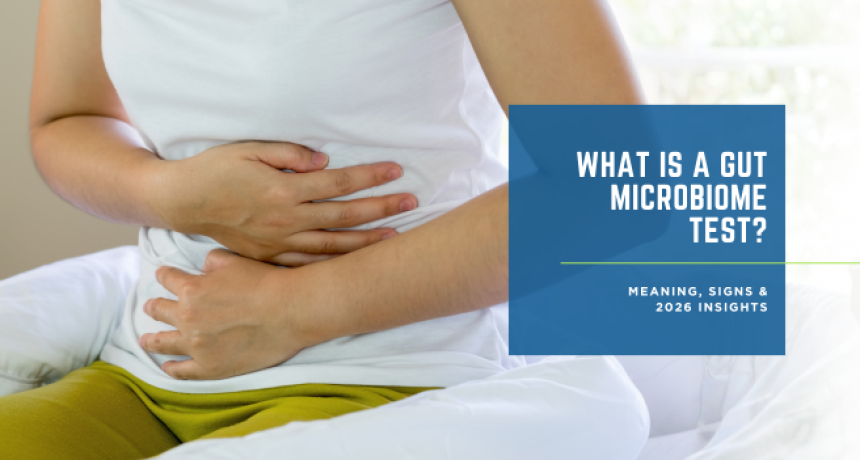What is PCOD Probem Symptoms? Common Signs and Treatment Options Available
2025-04-15 In the past, we have never heard of our grandmothers or mothers complaining about a condition known as PCOD. But, in recent times, with the changing lifestyle and juggling between personal and professional life, most women have failed to take care of themselves and their health. A recent study has shown that 1 out of 5 women suffer from PCOD, which is also known as Polycystic Ovarian Disease(PCOD full form). If you are suffering from this condition, you are not alone. Around 20% of women suffer from PCOD. This blog is your perfect guide, which gives you an in-depth understanding of what is PCOD problem in females, what the common signs & symptoms of PCOD are, causes, treatment options, and much more. Come, let us take a closer look at this condition! PCOD or Polycystic Ovarian Disease is a medical condition where the women’s ovaries produce premature eggs. This production of pre mature eggs happens during the reproductive age. These premature eggs later develop into cystsin ovaries over time. As these cysts grow inside the ovaries, the ovaries become large and secrete male hormones. This hormonal imbalance can affect normal ovarian function. One of the major problems is irregular periods, infertility, sudden weight gain, and other health issues. This indicates PCOD problem symptoms that need attention and proper care. The exact cause of PCOD is undetermined. It can be for many reasons, including genetic and environmental causes. Doctors have found that PCOD is caused by the following reasons. Unhealthy diet. Dormant lifestyle. Environmental issues like pollution. Medications that can alter the hormonal functions. Medicines which are taken without doctors prescription or OTC medications. Most PCOD cases are primarily genetic. The condition must be prevalent among family members. Other than these genetic reasons, there can also be physiological reasons. Take a look at these general reasons. Excess Insulin Production: Insulin is a natural hormone produced by the pancreas. This hormone is responsible for maintaining blood sugar levels and regulating metabolic functions. Studies have found that excess secretion of insulin can lead to PCOD. Insulin resistance is very common among women with PCOD. The excess secretion of insulin will stimulate androgen production; this can lead to PCOD. Inflammation: Low-grade inflammation is also one of the causes of inflammation. Several types of autoimmune diseases can lead to low-grade inflammation. This inflammation can lead to an increase in male hormones or androgen, which can lead to PCOD. High levels of androgen: Excess production of male hormones can lead to issues like excess facial hairs, acne breakouts, and other skin issues, which can lead to PCOD. Unhealthy lifestyle: An Unhealthy lifestyle is one of the major causes of PCOD. Eating junk food, lack of exercise are some of the key reasons for PCOD. These are all common reasons for PCOD in women today.
Obesity: Obesity can also be one of the causes of PCOD. Excess weight gain due to poor diet and lack of exercise can worsen the condition. and lead to PCOD problem symptoms getting more severe.
PCOD affects the ovaries adversely. Every woman has two ovaries, each releasing oestrogen and progesterone. It also produces the male hormone androgen. PCOD can disrupt the situation and cause excess secretion of male hormones. Some women start showing the symptoms even after the first period. Most of them leave it unnoticed. It becomes evident after the excess weight gain and facial hair. Here are some of the common signs & symptoms of PCOD One of the most common symptoms is irregular periods or menstrual cycle. Some women also experience heavy bleeding during menstruation. The excess secretion of male hormones leads to the growth of unwanted body and facial hairs. Excess male hormones can also cause extreme hair fall and hair thinning. Hormonal imbalance can cause acne and breakouts. They also experience pigmentation and darkening around the neck. Weight gain is a common symptom of PCOD. Many women experience a sudden increase in their weight and find it difficult to lose weight. Women with PCOD have shown signs of sleep disorder and depression. Another common sign of PCOD is difficulty getting pregnant. These are clear indications of what are the symptoms of PCOD problem, and early medication can help prevent further complications. The severity of the symptoms can vary from person to person. Some show no signs or symptoms of PCOD. The above-mentioned signs and symptoms can affect both the physical and mental well-being of women. Studies have shown that over 34% of the women diagnosed with PCOD suffer from depression, and over 45% of the women suffer from stress and anxiety. Here is a list of complications often faced by women with PCOD/PCOS. These complications even need proper medical attention. Abnormal Uterine Bleeding: Irregular menstrual cycle is a common sign of PCOD. This can gradually develop into severe bleeding or prolonged or unpredictable bleeding. This abnormal uterine bleeding can cause various physical discomfort that requires immediate medical attention. Infertility: One of the most common problems faced by women with PCOD is infertility. Irregular periods and missing ovulation make it difficult for them to conceive. These can emotionally drain a woman. They need to undergo fertility treatments, which are a part of PCOD treatment.
Type 2 diabetes: Insulin resistance is a common feature of PCOD. This can result in elevated blood sugar levels. This can gradually develop into type 2 diabetes. Miscarrriage: Women with PCOD have a higher risk of miscarriages. They are also subjected to pre mature labour and premature birth. This can adversely affect the health of both the mother and baby. Metabolic Syndrome: PCOD can affect health in many ways. They are prone to different metabolic disturbances like obesity, heart disease, insulin resistance, high blood pressure, and abnormal lipid levels. Depression: The symptoms of PCOD, such as unwanted hair growth and other metabolic disorders, can affect mental health badly. This can lead to depression, stress, and anxiety. Sleep Apnea: Women with PCOD have abnormal weight gain, and they experience difficulty sleeping, which eventually leads to sleep apnea. Endometrial Cancer: Women with PCOD have an increased risk of developing endometrial cancer. This is due to the prolonged exposure of the uterine lining to estrogen. There is a common confusion between PCOD and PCOS. So before understanding the major difference between PCOD and PCOS, we will have a detailed explanation of PCOS(Polycystic Ovary Syndrome). PCOS is a hormonal imbalance that affects the ovaries. This occurs when the ovaries secrete abnormally high levels of hormones. This can affect the reproductive system. Just like PCOD, women affected with PCOS also secrete higher levels of male hormones or androgen. PCOS affects women during the reproductive age, causing irregular periods and difficulty in getting pregnant. Here are the major differences between PCOD and PCOS PCOD/PCOS can be diagnosed with a few medical examinations. Here are the physical examinations that can help the doctors to diagnose PCOD. Blood Test: A Blood test is carried out to measure the hormonal levels, blood sugar levels, insulin, and cholesterol. Medical History: The doctor will have a detailed analysis of your previous medical history, including the menstrual cycle, weight changes, symptoms, and the medications you follow. Pelvic Examination: One of the most important diagnosis methods for PCOD is the pelvic examination. Through this, doctors can find any abnormalities or check for any masses, growths, and other changes. Ultrasound: A pelvic ultrasound is carried out to visualize ovaries, signs of any thickness on the lining of the uterus. PCOD problem treatment cannot be treated only with medications. It can be cleared only with both the medications and lifestyle changes. There is no proper cure for these symptoms. But you can nurture healthy habits to reverse the symptoms. Here are a few things you need to remember! Healthy Diet: The first and foremost thing you need to focus on is a healthy diet. Eliminate processed foods, sugar, and fatty foods from your diet. Include more fruits and vegetables. Lifestyle Changes: Along with healthy food, lifestyle changes are mandatory. Do regular physical activities and exercises to keep you healthy and fit. This is an essential element in how to reduce PCOD problems naturally.
Hormonal Treatment: One of the most common treatments for a person suffering from PCOD is hormonal treatment. Infertility: Infertility is a very common complication faced by people with PCOD. Women should undergo infertility treatments to get rid of infertility issues. Skin treatment: One of the common problems faced by women with PCOD is skin issues. You can take skin treatments to avoid skin issues like acne, breakouts, and hyperpigmentation, and PCOS dark patches. These are some of the common treatment options available for PCOD. Along with these treatments, there are some medications you need to follow. Progestin – Progestin is a synthetic progestogen that is recommended to perfect amenorrhea. Contraceptive Tablets/Pills – Contraceptive pills contain estrogen and progestin that help in reducing the male hormone in the body. This also helps in combating anovulation. Metformin – Obesity is one of the major causes of PCOD. For this, Metformin is used. It is a medicine that reduces insulin in the body, thereby helping in weight loss. Laparoscopy – Laparoscopy is a mini-surgery used to lower testosterone levels in the body. This will help in curing PCOD to a great extent. Ovulation-Stimulating Medications: Drugs like clomiphene, letrozole, metformin, and gonadotrophins can help improve ovulation. and are a part of PCOD treatment plans.
L&B Clinics is your trusted partner for getting specialized PCOS treatment in Delhi. Here we give you the right care, nutrition plan, and lifestyle changes to treat PCOS. Take a look at these healthy diet plans for patients suffering from PCOD and PCOS. Always eat natural food and avoid unhealthy processed food. Leafy vegetables are a great plus. Eat whole grains, legumes, and fibrous fruits and vegetables. These can improve weight loss. Choose food rich in omega fatty acids. Fish is a great source of omega fatty acids. Improve your gut health by including probiotic foods like curd, yogurt in your diet. Avoid alcohol consumption. Limit the intake of carbohydrates. Do not forget to drink water. Always stay hydrated. PCOD is not a disease, it is a condition caused by hormonal disorders. The exact cause for PCOD is unknown. Women with PCOD often suffer from physical and mental deterioration. There is no specific treatment for PCOD. You can reverse the symptoms by following a healthy lifestyle and with few medications prescribed by the specialized doctors. We hope this blog has given you a detailed understanding on what is PCOD, the symptoms and signs and the treatment options. If you suspect any of the symptoms, you can immediately consult a gynecologist. With the right treatment, you can avoid fertility problems. At L&B Clinics, we offer you the right care for all your problems. For more information, contact us! The common signs and symptoms of PCOD are irregular periods, obesity, hair loss, growth of facial hair, and skin problems like acne, scars, and hyperpigmentation. The best treatment is to maintain a healthy diet with exercise and physical activity. You can also take medications as prescribed by your gynecologists. No, there is no permanent treatment for PCOD. You can reverse the symptoms with a healthy lifestyle and regular exercise. What is PCOD(Polycystic Ovarian Disease)?
What Causes PCOD (Polycystic Ovarian Disease)?

What are the Common Symptoms of PCOD?
What are the problems or complications associated with PCOD/PCOS?

Difference between PCOD and PCOS

What is PCOS(Polycystic Ovary Syndrome)
Diagnosis of PCOD/PCOS

What are the Treatment Options Available for PCOD?
PCOD/PCOS Diet Plan

Final Thoughts
FAQs About PCOD
What are the Common Signs & Symptoms of PCOD?
Which treatment is good for PCOD?
Is there any permanent treatment for PCOD?
.png)

